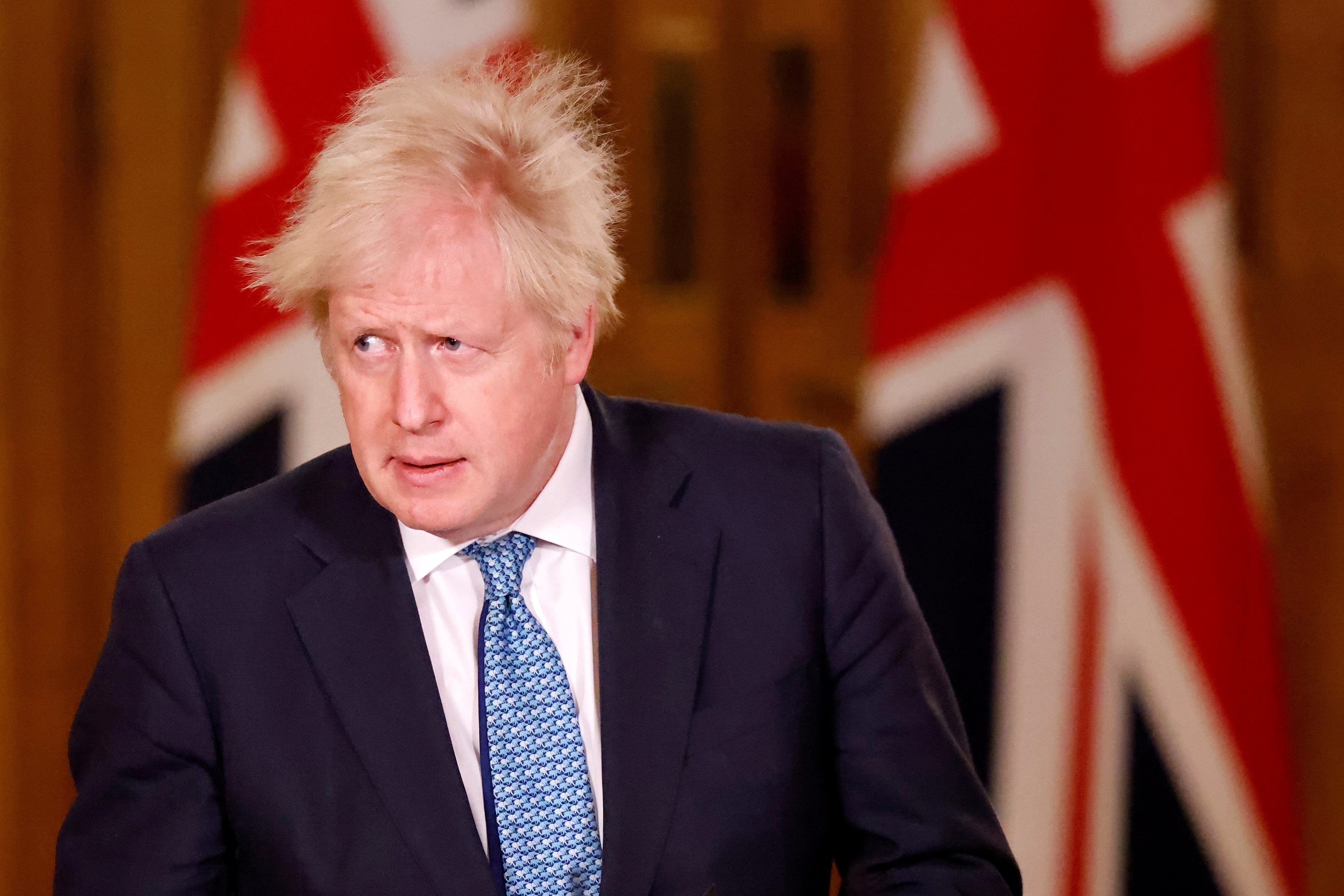Boris Johnson has blustered through a disastrous year – which means he will be prime minister for a long time yet
For a leader who has handled the coronavirus crisis as badly as most journalists say he has, Boris Johnson remains remarkably popular. So what’s his secret, asks John Rentoul


Never show your fear. Peter Mandelson explained how he maintained his reputation as someone who stayed calm in a crisis in an interview last week with Matt Forde, the author of Politically Homeless. It was one of many fascinating insights from someone who understands politics better than most. It was particularly striking to hear him say: “I’m rather proud of being a role model for young gay people.”
It was in that context that he talked about fear. He has never hidden his sexuality, but equally he has never – until now – made anything of it. In the interview, he recounted the moment in 1998 when Matthew Parris, the gay former MP, “outed” him on Newsnight. Mandelson was watching the programme at home and “didn’t bat an eyelid” when Parris said he was gay.
The comment provoked a media storm, however, and Mandelson said that Alastair Campbell, Tony Blair’s press secretary, wanted him to issue a “clarifying statement”, which Mandelson was reluctant to do. The prime minister decided against it, saying it would give the story another push, but Mandelson was besieged by the media every time he went out, and had to tell himself he had “nothing to be ashamed of” and “never show your fear”.
This is one of the keys to understanding Boris Johnson – and indeed to understanding many of the people with unusual personalities who become prime minister. On Monday, for example, Johnson came to the lectern in 10 Downing Street for another news conference. He had hoped to announce that he had spoken to Emmanuel Macron, the French president, and that they had sorted out the silly misunderstanding about the Dover-Calais crossing.
Instead Macron had obviously given him an unhelpful answer, and the prime minister was forced to address the nation to explain that it had been blockaded by the rest of the world while the faster-spreading variant of coronavirus was already outrunning the latest tightening of restrictions.
A normal person might have been daunted to be the bearer of bad news, but if Johnson was worried, he didn’t show it. “I want to update everyone on one thing, and that’s what’s happening at our borders and especially at Dover,” he said. He reeled off some numbers that implied the problems were minor – numbers that were shown to be mistaken minutes later – and said: “We are working with our friends across the Channel to unblock the flow of trade as fast as possible.”
It was all bluff, bluster and baseless optimism, and yet these are the traits that keep him going and allow him to bounce back from any setback. People who don’t like him can’t stand the effrontery of it, and yet, after everything that has happened this year, Johnson is still there. For a prime minister who has handled the coronavirus crisis as badly as most journalists say he has, he remains remarkably popular, and the Conservative Party is still fending Labour off in the opinion polls.
Temperament is a large part of being a successful politician. Each has a different style of dealing with adversity. Blair shared Mandelson’s expressionless calm; Gordon Brown was a bulldozer; David Cameron had a cheerful briskness; Theresa May had her impenetrable silence. Johnson has his confident bluster. A certain shamelessness is necessary, too. They all have it – and Johnson more than most. Tuesday’s peerage for Peter Cruddas, the Tory donor and former treasurer of the party, in defiance of the recommendation of the independent House of Lords commission, is a classic example of that.
Andrew Gimson, Johnson’s biographer, commented last week on how the columnist turned prime minister works: “Solemn people have often found his journalism irresponsible, and now they find his politics irresponsible. But that is part of the point. Whether writing, speaking or negotiating, Johnson puts on a performance which the spectators enjoy all the more because it horrifies the guardians of convention.”
Of course it is a performance, and one that requires fearlessness in the face of things going wrong, as they have done for Johnson all year. At every stage in handling coronavirus he has sought to play down its seriousness and to play up the prospect of “seeing it off” implausibly quickly. As a result he has often seemed to act irresponsibly late.
Yet a large proportion of the British people are still prepared to give him the benefit of the doubt. As long as he never shows his fear, he could be prime minister for a long time to come.



Join our commenting forum
Join thought-provoking conversations, follow other Independent readers and see their replies
Comments